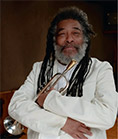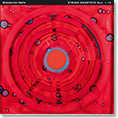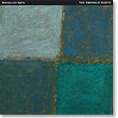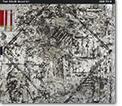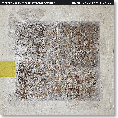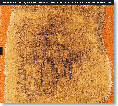THE MUSIC - TARA'S SONG

This is how Ahmed Abdullah describes the music on this recording and the reasons for its inclusion:
Sans Souci (Gigi Gryce)
Gigi Gryce has always intrigued me. His reputation among musicians is
impeccable and I came to understand the reasons for this so much more
clearly in 2003 when we celebrated him in our annual CBJC Tribute. Mr.
Gryce was a great composer as can be heard in Sans Souci but he was also
an organizer and educator. It is important to me that musicians do not
just play their instruments but are actively involved in changing the
way this music is perceived and appreciated. I recently learned from the
biography of Gigi Gryce (Rat Race Blues by Noal Cohen and Mike Fitzgerald)
that Mr. Gryce became a music teacher in the Bronx during the latter part
of his life. That is a connection that we share.
Lonely Woman (Ornette Coleman)
The Blues is one of the foundations for "Jazz: The Music of the
Spirit" and Ornette Coleman´s music, like that of Thelonius
Monk, is so steeped in the Blues that his compositions provide an immediate
hook and an understanding of the concept. Billy Bang did this arrangement
of Lonely Woman many years ago and I have always thought that he captured
something special in this treatment.
Tara´s Song (Ahmed Abdullah)
Tara is my girl, her smile her face
Her loving ways
Tara is my girl, her love, her eyes
Her sense of grace
She is an angel, who´s come to show us all the way
She is angel who´s sent to speak to us today
Tara is my girl, to see her face
Is an embrace
Nothing but Love (Frank Lowe)
The late saxophonist Frank Lowe was a very good friend of mine and whenever
we played together it was memorable. He was very proud of his composition
Nothing But Love because Bertha Hope made it the title tune of one of
her recordings. The inclusion of Frank´s composition is meant to
pay tribute to him as a genuine artist.
Tapestry from an Asteroid (Sun Ra)
When I explain what "Jazz: The Music of the Spirit" is, I
use Sun Ra along with Duke Ellington and John Coltrane as its finest examples.
Hence, two of Sun Ra´s beautiful compositions, Tapestry from an
Asteroid and Fate in A Pleasant Mood, are included in this collection.
Tapestry from an Asteroid was first recorded by Sun Ra and his Myth Science
Arkestra around 1956 and released on We Travel the Spaceways (Saturn).
A 1961 recording of the tune was included on The Futuristic Sounds of
Sun Ra (Savoy). This is the first time that I know of when the lyrics
of Tapestry from an Asteroid are presented along with the music.
Blue Monk (Thelonius Monk)
This arrangement of Thelonius Monk´s composition is something that
I put together to show his and my relationship to the tradition of collective
improvisation, a very important part of the music. It is a new take on
a melody that stays with you forever.
Fate in a Pleasant Mood (Sun Ra)
The lyrics to this song are meaningful and positive. Sun Ra´s instructions
to those who heard him were about infinite possibilities, about doing
the impossible and doing that which cannot be duplicated. Therefore, if
you have faith then you can find fate in a pleasant mood and you can change
your destiny and do the impossible. Fate in a Pleasant Mood was first
recorded by Sun Ra and his Myth Arkestra in 1961 and released as the title
tune of an album on the Saturn label in 1965.
The Cave (Ahmed Abdullah and Dr. Cola)
This composition represents all the mystery that one finds in a cave.
The story of the composition´s origin and my connection to the co-composer
is the stuff of which books are written. Suffice it to say, for brevity,
that there is a major story here and, if you listen closely to the music,
you might well imagine it.
I have never believed in any one city being the origin of this music. Rather, I have thought that, wherever African people migrated and gravitated to, an art form, which aided them in coping with the existing lack of humanity and respect for their being, was created allowing for the birth of "Jazz: The Music of the Spirit". It did not matter whether the city was Birmingham or Mobile, Alabama; Washington, D.C.; Philadelphia; New York City; Chicago; or Memphis. Wherever there was a need, an art form was created to satisfy that need, and that is why 105 years later we are still expanding and expounding upon this music, as the need for it still exists. Still, there is no question that great music came and comes from New Orleans as well and that is why we feature Iko Iko.

